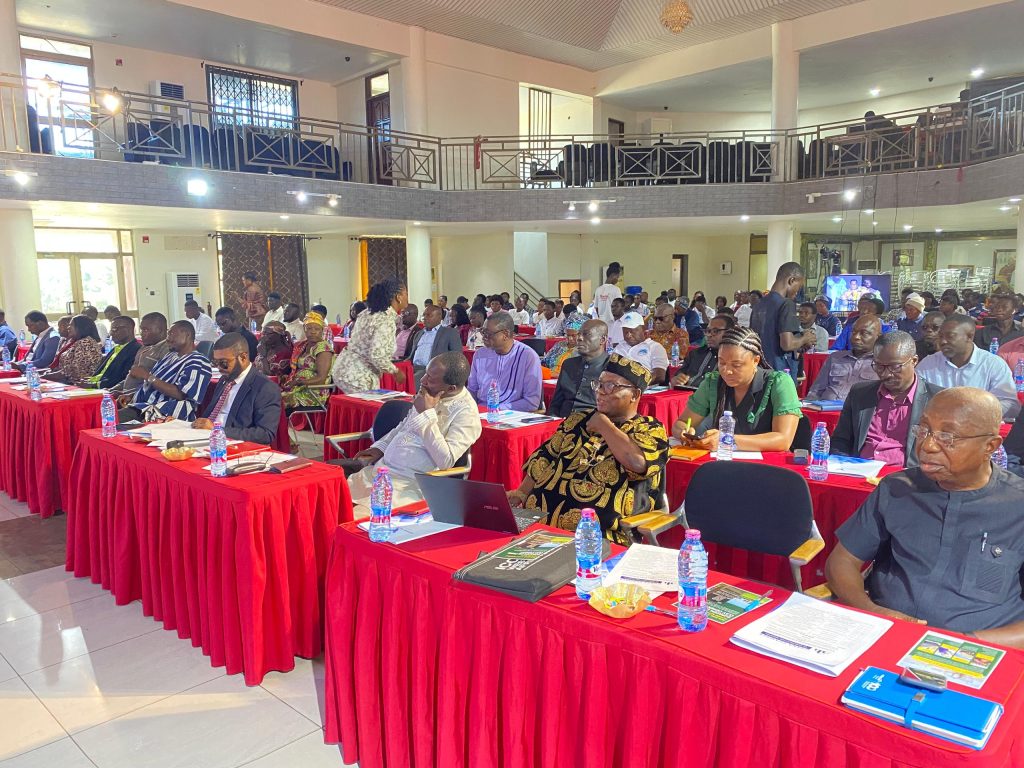By Emmanuel Gamson
Takoradi, Oct. 11, GNA – The Ghana Chamber of Construction Industry (GhCCI) has held its Sixth Annual General Meeting and Conference, in Takoradi, to discuss ways to ensure environmental sustainability in the construction sector.
It was on the theme: “Climate adaptation strategies in sustainable infrastructure development – the role of the construction sector players”.
Mr Emmanuel Tetteh Martey, the Chairman of the GhCCI, at the opening of the two-day Conference, said the theme highlighted the need for the construction industry players to go beyond brick and mortar, to adopting sustainable and innovative practices to offset climate change impacts.
He said extreme weather conditions, for instance, threatened the sustainability of road infrastructure and buildings, and suggested that the situation demanded a change in project designs which were ecologically friendly, saying, “Climate resilience is no longer an option but a necessity”.
Mr Martey said: “The role of those of us in the construction industry cannot be understated. We are uniquely positioned to build mitigating effects of climate change during this transition towards adopting sustainable practices”.
He called on the government, environmental experts, planners, the academia and policymakers to lead the charge, especially with the upsurge of illegal mining (galamsey) that threatened the environment and caused land degradation.
Mr Martey said the industry could not remain indifferent to the issue of ‘galamsey,’ and needed to collaborate with relevant bodies to find sustainable solutions to the menace.
“We do not have to politicise the issue because it will make the enforcement difficult. We need to protect our environment for our future development plans,” Mr Martey said.
Vice President Dr Mahamudu Bawumia, in an address read on his behalf, said collaboration was key to increasing the adoption of climate-resilient strategies, adding that, knowledge sharing and innovation was critical for swift implementation of policies on climate adaptation.
He said: “The onus is on all of us. Developers and contractors must prioritise sustainable practices, architects and engineers must integrate climate resilience into their designs, while policymakers must enforce building codes that support environmental responsibility.

“Investors and insurers have a crucial role in channeling funds into climate-adaptive projects and ensuring infrastructure is built to last in a changing world,” he said.
Dr Bawumia stated that the scale of environmental impact from the sector was immense, and that industry players must be at the forefront of efforts to reduce their carbon footprint.
“We must embrace sustainable design, materials, and practices that promote energy efficiency, resource conservation, and climate resilience,” and insisted that the integration of green building certifications, energy-efficient systems, and innovative technologies must become standard practice.
Nana Dr Appiagyei Dankawoso I, the President General of the West Africa Nobles’ Forum, and Chairman for the event, said the construction industry had the power to lead the way in developing and implementing climate adaptation strategies that would shape a more sustainable future for all.
Mr Justice Amo, the Chief Executive Officer of Justmoh Construction Limited, said the construction industry had the responsibility not only to build roads and cities, but to do so in a manner that communities would thrive for generations to come, in the face of a changing climate.
GNA